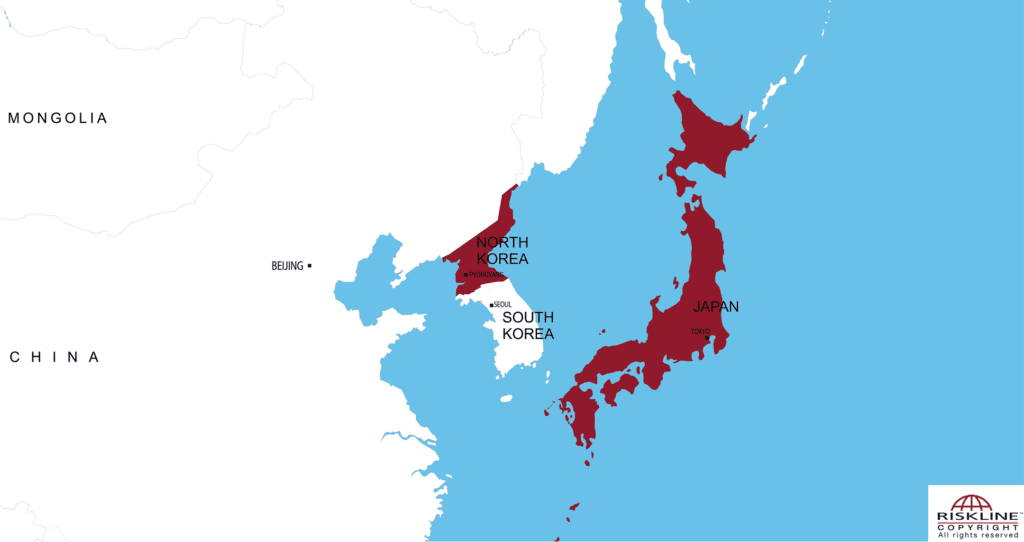Inter-Korean relations have seen remarkable progress since the beginning of 2018. Following a year of continuous nuclear and missile testings and escalating rhetoric in 2017, Pyongyang changed course and resorted to diplomacy with an unprecedented willingness to repair relations with its neighbour South Korea. Both countries have made conscious efforts to engage the United States (US) in the ongoing Korean peace process. However, a successful detente on the Korean peninsula is likely to reduce US influence on the region in the long-term.
The year 2018 was ushered in on a positive note with North Korea participation in the Winter Olympics hosted by South Korea in Pyeongchang. On short notice and following relentless efforts from both North and South Korean officials, Pyongyang sent its athletes and delegates to the February 2018 Olympics. The symbolic value of Pyongyang participating in the games also increased the diplomatic stakes when it triggered peace talks between the two countries and led to an inter-Korean summit on 27 April, the first of its kind in a decade. Following this, in a groundbreaking move, a summit between North Korea and the US was proposed to be held in Singapore on 12 June, although threats of backing out by both parties have made the situation uncertain.
Both Seoul and Pyongyang have made noticeable efforts in reaching out to the US vis-a-vis the Korean peace process. But in the long-run, it is likely that Washington’s influence in the region will wane as East Asian nations embark on a path of closer engagement and greater cooperation. The US military has maintained a heavy presence on South Korean territory for almost 70 years: around 28,000 American troops are stationed on the peninsula currently, to act as a deterrence for North Korea’s aggressive military posture. But a successful detente between the two Koreas might substantially alter this reality. With the North Korean threat under control, such a large-scale continued presence of US troops on the peninsula will be unnecessary. Moreover, US President Donald Trump himself has questioned the need for deploying soldiers to South Korea on more than one occasion, perceiving it as a financial burden rather than a strategic investment.
During the April 2018 inter-Korean summit, North Korean leader Kim Jong-un and South Korean President Moon Jae-in pledged to initiate the denuclearisation of the peninsula, as a part of a peace accord known as the ‘Panmunjom Declaration for Peace, Prosperity and Unification of the Korean Peninsula’. Following this, Pyongyang started dismantling its only known nuclear test site at Punggye-ri. While it remains unclear whether North Korea will be able to resume tests by fixing this site or by moving to another previously unknown site, the move was symbolic of a charm offensive being pursued by Kim Jong-un to portray the regime in good light in the hope of easing international economic sanctions against the country. Likewise, if North Korea continues to adhere to this policy of denuclearisation, it would be unnecessary to deploy any further missile-intercepting systems like the Terminal High-Altitude Area Defence (THAAD) system which started to be deployed by the US in South Korea in late 2017.
These potential scenarios would be indicative of a trend of diminishing US influence in Asian geopolitics. As North Korea, South Korea and even Japan make increased efforts to engage with each other and, more importantly, with China, it seems likely that traditional US allies like South Korea would strive to reduce their strategic dependency on the US. A successful detente between the two Koreas would mean a significant reduction of the perceived threat from the ‘rogue regime’ and an eventual de-escalation of regional tensions. China in the meantime would continue to play an assertive role as the most prominent actor in the region. China’s role in the Korean peace process was reaffirmed by multiple meetings between North Korean and Chinese leaders both before and after the inter-Korean summit.
The Korean peninsula is no longer the stage for a proxy battle between two superpowers. The continued presence of US forces in the region seems unnecessary and might unduly hamper the Korean peace process. Another aspect which could contribute to the dwindling US influence in the region is President Trump’s incoherent East Asia policy. Trump’s inconsistent and unpredictable actions have pushed states to fend for themselves. As a presidential candidate in 2016, Trump expressed dissatisfaction at the strategic dependency of Japan and South Korea on the US for security requirements and claimed that he would slash this financial burden. On the contrary, after being elected, he reaffirmed the importance of these security partnerships, making his US East Asian policy unclear. Looking ahead, East Asia is likely to attempt to move away from its traditional US sphere of influence, and instead trying to meet its security needs by rebalancing power internally. A detente on the Korean peninsula, if successful, would only increase the momentum of this process.















